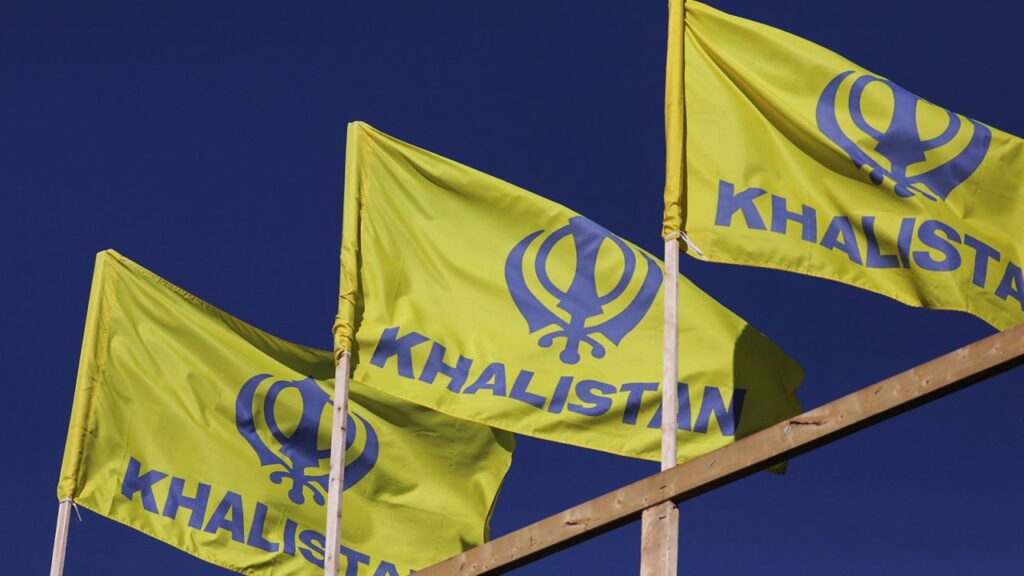In the early hours of June 23, 1985, a bomb planted in the cargo hold of Air India flight 182 traveling from Montreal to New Delhi exploded off the coast of Ireland, killing all 329 people on board.
The people arrested and charged for the bomb attack were Indian-born Sikh Canadians, alleged by prosecutors to be radical separatists seeking revenge for the Indian army’s deadly storming of the Golden Temple in Punjab state the previous year. Only one was convicted; two were acquitted in 2005, and in 2016, Canada released the only person ever found guilty of the bombing.
Nearly four decades on, that terrorist attack – which remains the worst in Canada’s history – and the wider history of overseas Sikh separatism has suddenly been thrust back into the international spotlight in the wake of Canadian Prime Minister Justin Trudeau’s allegations the Indian state may have been involved in the June killing on Canadian soil of Hardeep Singh Nijjar.
New Delhi had previously designated Nijjar, an Indian-born Canadian national, as a terrorist, and accused him of being behind a banned militant group that sought to “radicalize the Sikh community across the world” in support of Khalistan – a separate Sikh homeland that would include parts of India.
Nijjar’s supporters rejected the terrorist label, arguing it was used to discredit the Sikh leader, who was known for his Khalistan advocacy and speaking out against alleged human rights abuses by India’s government.
Trudeau’s assassination claim has inflamed relations with New Delhi, which has fiercely denied the allegation and taken a series of diplomatic measures to make clear its displeasure with Canada.
Relations between the two countries – both key US allies – have nosedived and neither side shows signs of backing down.
The question some are now asking is, why has an issue that has laid largely dormant in recent years suddenly become such a live issue again?
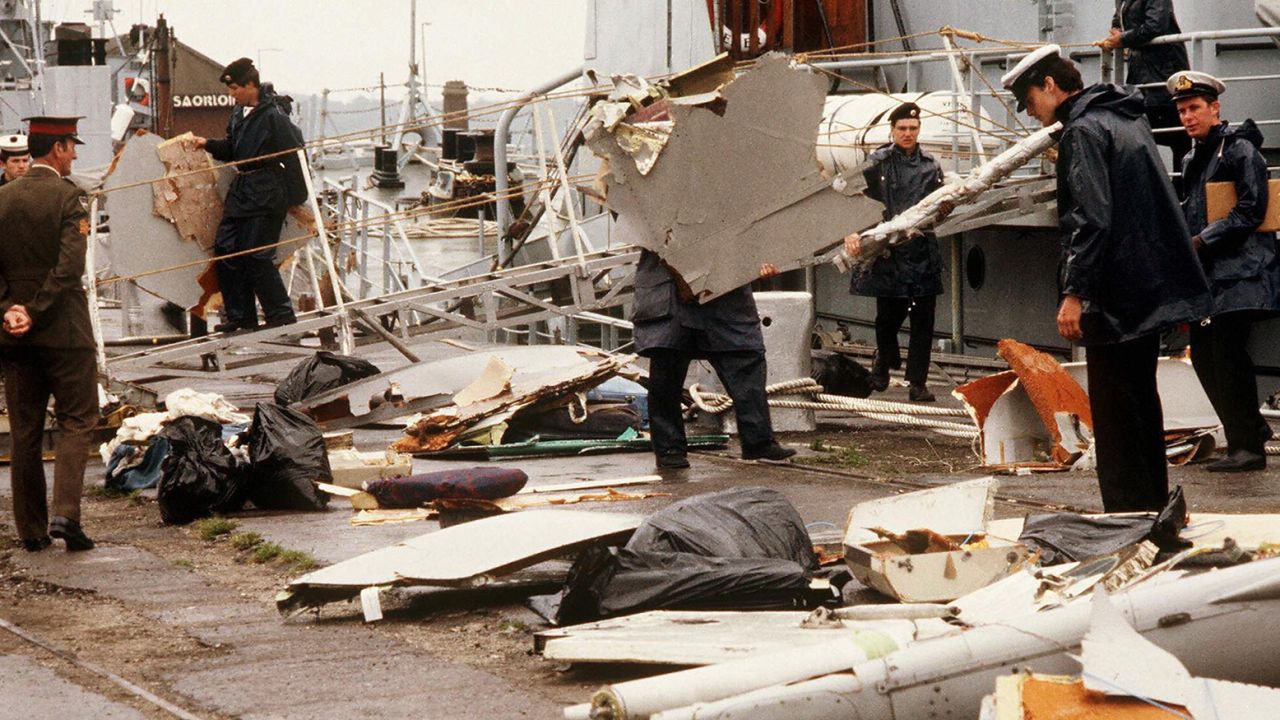
Irish naval authorities bring ashore debris from an Air India Boeing 747 in Cork, Ireland, following the bombing of the aircraft on June 23, 1985.Andre Durand/AFP/Getty Images/File
Stuck in the past?
Sikhism, a monotheistic faith, was founded in the Punjab region in the 15th century by Guru Nanak, a non-practicing Hindu who preached about freedom of religion, community service and inclusiveness.
Amplified calls for the creation of Khalistan date back to when India gained its independence in 1947. The departing British split the country in two, in what became known as Partition, with the demarcation slicing Punjab – once home to a large and powerful Sikh empire – in half.
Muslims were expected to go to newly formed Pakistan, and Hindus and Sikhs to independent India. While Sikhs formed a majority in Punjab, they were a minority in India, where they today make up less than 2% of the country’s 1.4 billion population.
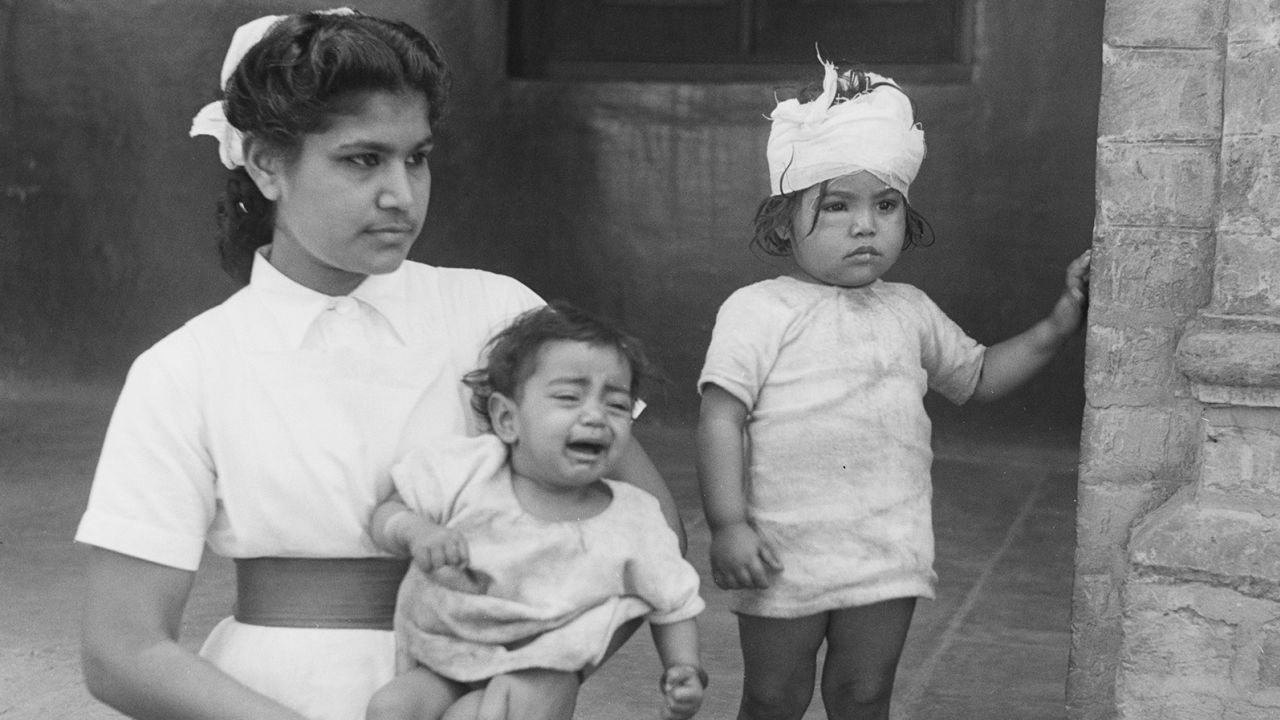
A nurse with two child victims of communal violence in Amritsar, Punjab, during the Partition of British India in 1947.Keystone Features/Hulton Archive/Getty Images/File
Some in the Sikh community felt mistreated in the new Hindu-majority nation, and the struggle began for greater political and cultural autonomy. Bloodshed between Sikhs, Muslims and Hindus ensued, prompting some Sikh leaders to call for the creation of a new homeland.
The calls sparked further clashes between the separatists and the Indian government, which claimed many lives.
But while there hasn’t been an active insurgency in Punjab for nearly three decades – a 2021 Pew Research Center survey found 95% of Sikhs were “very proud” to be Indian, while 70% agreed that a person who disrespects India cannot be a Sikh – security officials in the region have in recent years sounded the alarm for renewed calls for separatism after sporadic violence, blasts and targeted killings of Hindu religious leaders.
“Khalistan is now mostly a bogey term in India,” said Amandeep Sandhu, author of Panjab: Journeys Through Fault Lines. “But there is a sense that injustice has been done to the Sikhs and Punjab.”
Earlier this year, police embarked on a colossal hunt for Amritpal Singh, a Sikh separatist who had revived calls for an independent homeland. His comments about social issues and protecting religious rights of Sikhs against India’s ruling Hindu nationalist Bharatiya Janata Party (BJP) struck a chord among some in the state.
Police had accused Singh of attempted murder, obstruction of law enforcement and creating “disharmony” in society, prompting him to hide from authorities while hundreds of his supporters marched through the streets of Punjab, demanding his freedom. He was arrested in April, after more than one month on the run.
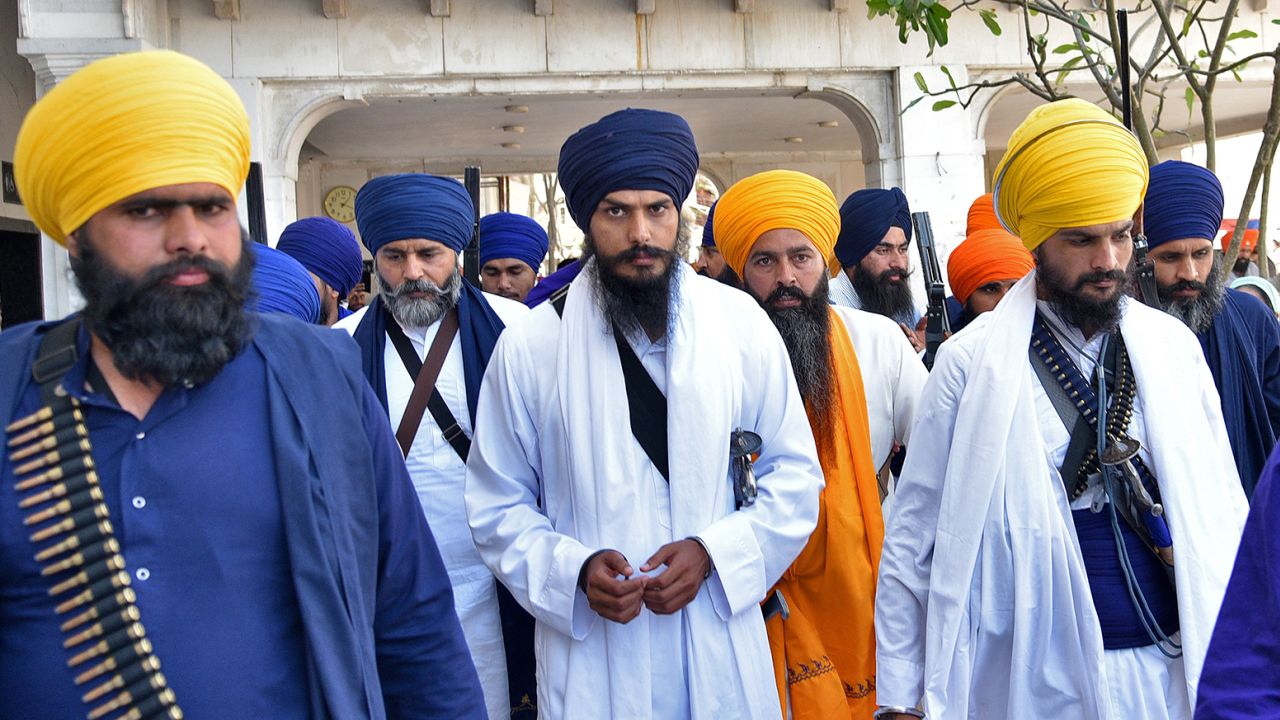
Amritpal Singh leaves the Golden Temple along with his supporters, in Amritsar, India, March 3, 2023.Stringer/Reuters
And amid tensions with Canada, India’s anti-terror agency last week conducted raids across seven Indian states and union territories in connection with alleged Khalistan violence and promised a reward for information leading to the capture of five individuals who it accused of “spreading terror” in the state of Punjab.
Memories of a painful insurgency
Prime Minister Modi and the ruling BJP have long maintained that Canada’s inaction toward extremism within the sizable Sikh diaspora poses a national security threat to India.
And although Modi has yet to publicly address the growing rift with Ottawa, Indian authorities have called Canada a “safe haven for terrorists,” and New Delhi has suspended visas for Canadian citizens, citing “security threats” against diplomats in the country.
At the same time, some Sikh supporters of Khalistan have made comments perceived as anti-national and threatening toward India and its government.
“India has consistently accused Canada of accepting people responsible for violence in India and has asked for the extradition [of Sikh separatists] including those responsible for the Air India bombing,” said Suhasini Haidar, diplomatic affairs editor at The Hindu newspaper in New Delhi. “India has always said Canadian authorities have been dragging their feet over it.”
That bombing capped a period when clashes between the Indian state and Khalistani militants had reached an apex.
The decade-long Khalistan insurgency in the 1970s and 80s saw the massacre of civilians, indiscriminate bombings and attacks on Hindus. And in counterinsurgency operations, Indian security forces were accused of a multitude of human rights abuses.
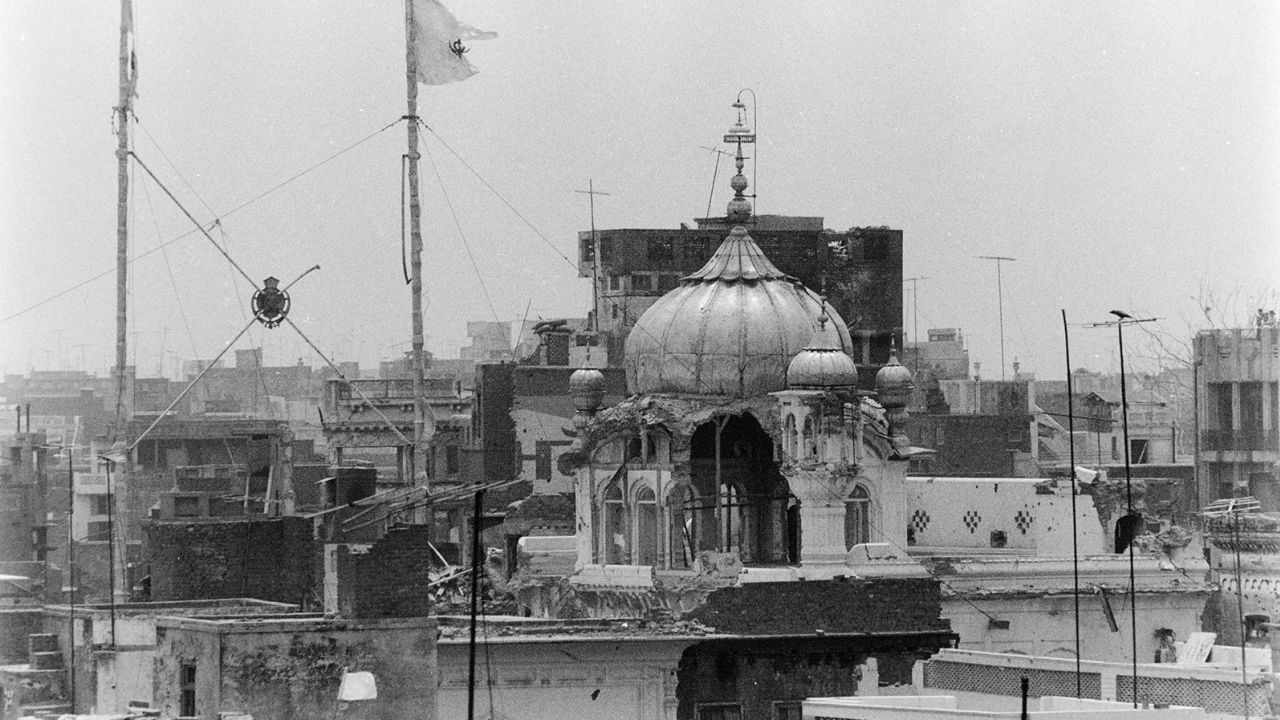
The first photos of the damaged Akal Takhat after the army stormed the sikh Golden Temple complex in Amritsar on June 9, 1984.Sondeep Shankar/Hulton Archive/Getty Images
The insurgency reached its peak in 1984 when then Prime Minister Indira Gandhi ordered Indian troops to storm the Golden Temple in Amritsar, Sikhism’s holiest shrine, to dislodge a Sikh militant and his supporters who had been hiding in the complex.
The operation destroyed much of the temple and left hundreds dead, sparking widespread Sikh outrage. Months later, Gandhi was killed by her Sikh bodyguards in an act of revenge.
“In some ways, before extremism came to the West, it was Sikh extremism that was defining India’s national security concerns,” said Harsh Pant, vice-president of the Observer Research Foundation, a New Delhi think tank. “As a result, there is a degree of sensitivity involved in how the Indian government frames its national security agenda.”
Riots broke out in the days after Gandhi’s assassination, killing some 3,000 people – predominantly Sikhs – according to official figures, in one of the worst outbreaks of communal violence since India’s partition.
A disconnect with the diaspora
In the years that followed Gandhi’s killing, advocacy for Khalistan diminished within India, though painful memories remain etched in the minds of many Sikhs still living there, many of whom were afraid to speak to CNN for fear of retribution from authorities and because of the sensitivity of the issue.
Those events continue to resonate with the Sikh diaspora in countries like the United States, the United Kingdom, Australia and Canada, many of whom say they are still seeking reconciliation for the human rights abuses committed against the community.
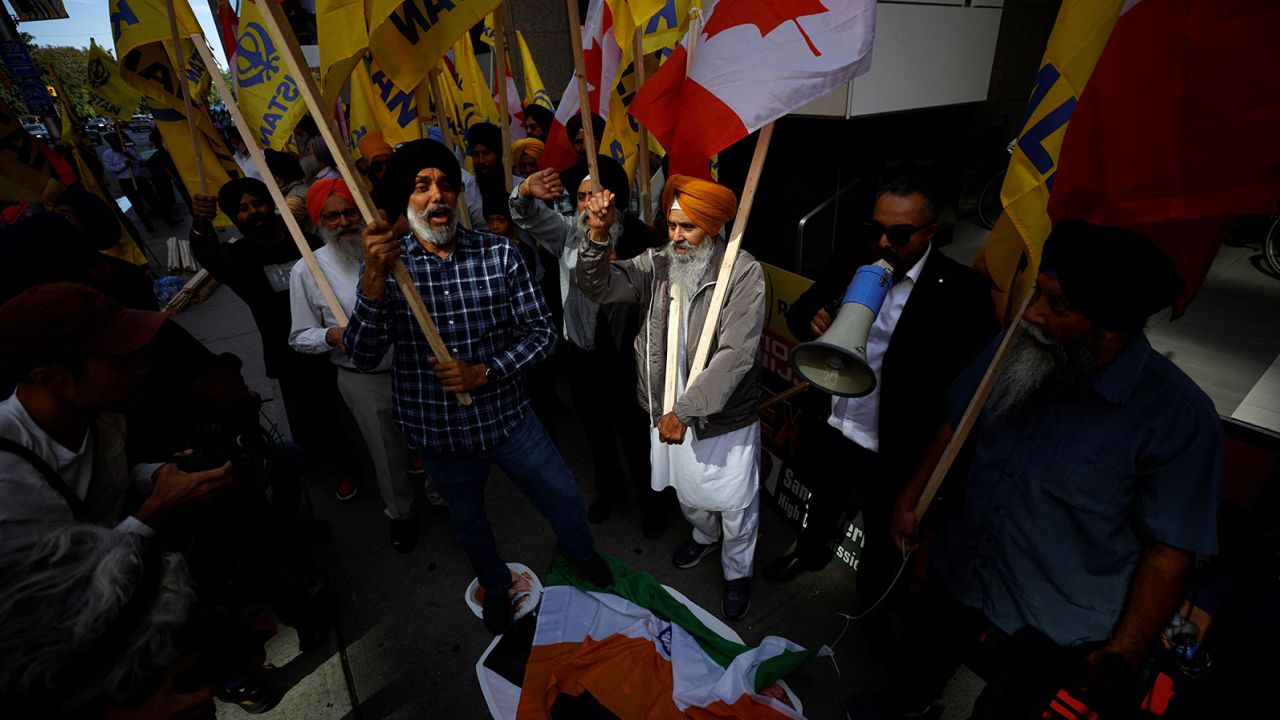
Protesters rally outside the Indian consulate in Toronto against the Indian government’s alleged involvement in the killing of Sikh separatist Hardeep Singh Nijjar on September 25, 2023.Cole Burston/AFP/Getty Images
Several overseas Sikh organizations say the Khalistan movement is being falsely equated with terrorism by the Indian government, and say they will continue to peacefully advocate for the creation of a separate homeland.
Those violently pursuing the Khalistan cause, analysts say, form a minority in Punjab. “Indian communities have dissociated, more or less, dissociated from the idea [of Khalistan],” said Pant, the analyst.
“The national security establishment is saying this is now less of a responsibility for the Indian government at home, but there is more responsibility on our partners in UK, Australia and Canada to see how this can be best resolved.”
As such, Nijjar’s death has come to symbolize a growing disconnect between members of the Sikh diaspora and Modi’s government.
For weeks after Nijjar was gunned down by two masked men while he was in his van outside a Sikh temple, many Canadian Sikhs urged authorities to investigate the murder, claiming he was killed for political reasons.
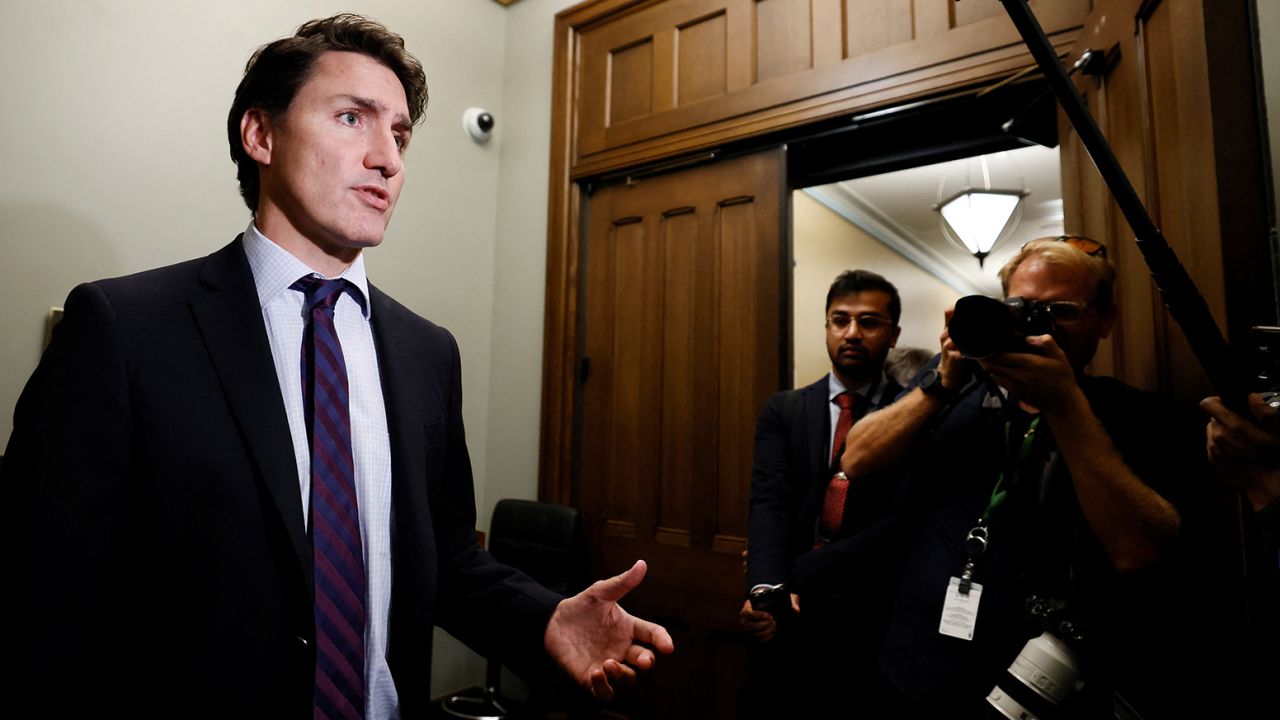
Canadian Prime Minister Justin Trudeau speaks to media outside his office in Ottawa on September 25, 2023.Blair Gable/Reuters
And Trudeau’s statement was welcomed by some members of the diaspora.
“The larger [Sikh] community is standing by the statements from Trudeau and they want action upon this,” said Jasveer Singh, a British Sikh and senior press officer with the Sikh Press Association.
“There is a sense that Sikhs are incapable of being free [in India],” he added. “There’s a lot of depth to this issue.”
Source : CNN World


